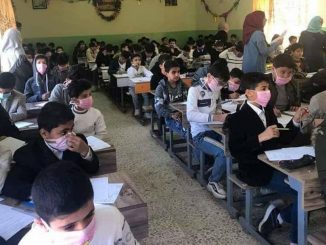
Among signs of ongoing human rights violations in Sisi’s prisons, there are three most recent stories in this regard: a death in detention, a hunger strike, and a painful family separation
These stories demonstrate the painful human toll inflicted on Egypt’s political prisoners under Abdel Fattah al-Sisi.
First, Walid Shawky, one of the founders of the April 6 Youth Movement, began a hunger strike on February 11 to protest his three and a half years of unjust detention.
Shawky has been in pretrial detention since October 2018 on bogus terrorism charges. As he approached the two-year legal maximum in August 2020, authorities forcibly disappeared him for a second time and then charged him with the same crimes in a new case. They added charges of participating in “illegal demonstrations” that occurred while he was in detention.
The Cairo Criminal Court renewed Shawky’s detention for another 45 days on February 8, part of what his wife called “a vicious cycle of torment without end.” Rights groups have repeatedly called for his release and for an end to the unjust practice of case recycling that keeps him and other political prisoners in detention indefinitely.
Second, the lawyer of Mohamed Ibrahim, known as “Oxygen” said that he will pursue a lawsuit to ensure Ibrahim has visitation rights in prison after the blogger declined to attend his mother’s burial and funeral service today.
Ibrahim’s lawyer, Nabih al-Genady, succeeded in his request to allow Ibrahim to leave prison for his mother’s funeral, but Ibrahim chose not to go, leading al-Genady to voice fears over Ibrahim’s psychological condition.
Ibrahim has been in prison since September 2019 and attempted suicide last summer after being deprived of any family visits for 15 months. Despite this, authorities continue to refuse visits, meaning that his mother had not seen her son for two years when she passed away last week.
Ibrahim was sentenced to four years in prison in an emergency court in December alongside activist Alaa Abdel Fattah and human rights lawyer Mohamed El-Baqer.
Third, the Egyptian Network for Human Rights (ENHR) accused Egyptian authorities of murdering businessperson Ahmed Shaheen, who died in prison on February 9 “after being tortured and deprived of proper medicine and treatment until his last breath.”
Shaheen, the 42-year-old former managing director of Azmeel Real Estate Company, was arrested nearly five years ago on his way back from a business trip. ENHR says that he was then forcibly disappeared for one month, during which he was physically and psychologically tortured in order to extract confessions of financing a terrorist group. He was then held in pretrial detention in Tora prison until February 5, just four days before his death, when he was finally moved to a prison hospital.
“Shaheen was suffering from severe allergies, which caused many health crises for him,” said ENHR Executive Director Ahmed Attar. “Despite appeals to release him or provide appropriate treatment and medication in a timely manner, authorities were intransigent and instead kept him in the same unhygienic and inhumane prison conditions, including poor ventilation and overcrowding.”
Shaheen’s death fits into a pattern of intentional medical neglect within Egypt’s prisons. The Arab Organization for Human Rights in the UK says that 49 detainees died in Egypt’s prisons last year.



